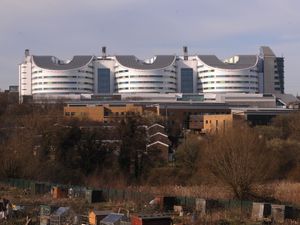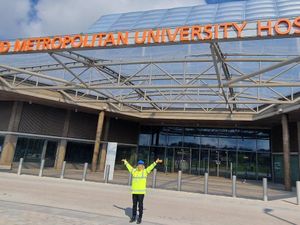Hospital turns old offices into wards in bid to cut patient wait times
University Hospitals Birmingham NHS Trust has the longest waiting list of any such trust in England.

The Birmingham hospital trust with the longest waiting lists in England has turned old offices into two new repurposed wards.
Bosses at the country’s largest NHS hospital trust are hoping the new in-patient beds will help “tackle the growing waiting lists that have built up” because of the pandemic, allowing it to treat more patients.
Managers say the wards were opening after waiting lists had “grown to levels never experienced before”.
The wards at the Queen Elizabeth Hospital Birmingham (QEHB) are first of seven planned in all, and were officially opened on Monday.
University Hospitals Birmingham NHS Trust (UHB), which runs the hospital and three others across the West Midlands, had 184,956 people waiting for treatment, according to latest NHS data.
Of those, 31,770 had been waiting more than a year.
The trust not only runs the QEHB, but also Heartlands, Good Hope and Solihull Hospital, and has treated 23,000 patients for Covid-19.
It was the “hardest hit of any other NHS organisation in England”, with 40% more Covid-19 cases than the next most-impacted trust, according to UHB.
Trust bosses said Covid patients still currently occupied “almost 400 beds” over all sites including 21 in ICU, but said the extra capacity would give “both hope and reassurance” to those on its waiting lists.
The new wards were former offices for clinical and corporate trust staff, but have been transformed into modern wards with space for 47 additional beds.

Jonathan Brotherton, trust chief operating officer, said: “While our hospitals are still experiencing the extremely challenging effects of the pandemic, these new wards provide both hope and reassurance for the people of Birmingham and Solihull, and our front-line clinicians who strive to provide the highest possible standards of care.
“Almost 400 beds are currently occupied by patients with Covid-19 across our hospitals, with 21 in ICU.
“This has a huge effect on our ability to provide other treatments that we would have normally used this capacity for, however these wards will help accelerate our continued recovery and treat more patients.”
He added: “Positive signs from many of our interventions are starting to show… our colleagues have created excellent facilities to help us deliver on our vision to build healthier lives.”





